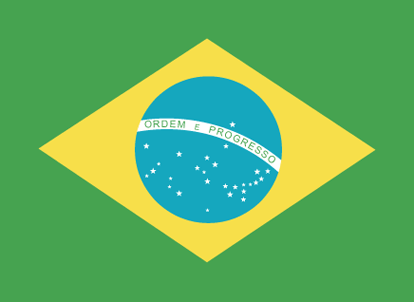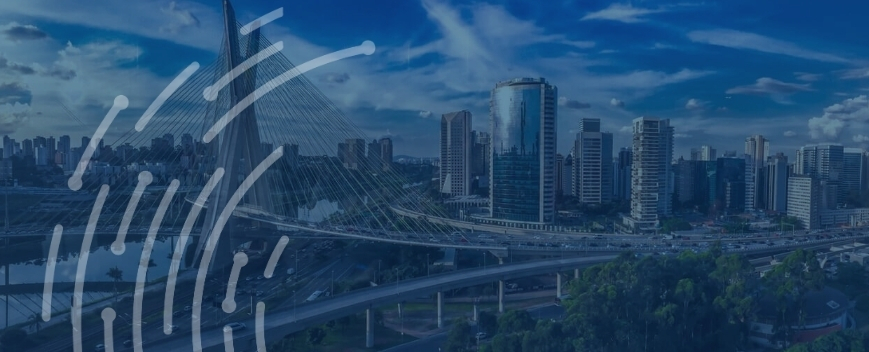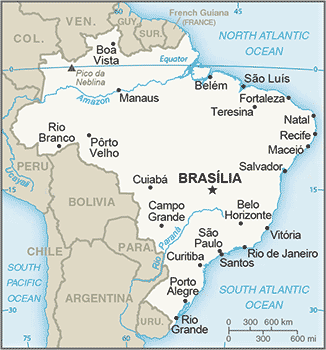Exporting to Brazil


Brazil Country Profile
Official Name (Local Language) Republica Federativa do Brasil
Capital Brasilia
Population 205,823,665
Currency Brazilian Real
GDP $1,770 billion
Languages Portuguese
Phone Dial In 55
Brazil Imports Profile
Imports ($m USD) 150,749
Number of Imports Products 4,288
Number of Imports Partners 216

Brazil Economic Statistics
Government Website | https://www.brasil.gov.br/ |
| Sovereign Ratings | https://countryeconomy.com/ratings/brazil |
| Central Bank | Banco Central do Brasil |
| Currency USD Exchange Rate | 3.39 |
| Unemployment Rate | 11.8% |
| Population below poverty line | 3.7% |
| Inflation Rate | 6.7% |
| Prime Lending Rate | 13.75% |
| GDP | $1,770 billion |
| GDP Pro Capita (PPP) | $14,800 |
| Currency Name | Brazilian Real |
| Currency Code | BRL |
| World Bank Classification | Upper Middle Income |
| Competitive Industrial Performance | 81/138 |
| Corruption Perceptions Index | 96/180 |
| Ease of Doing Business | 109/190 |
| Enabling Trade Index | 110/136 |
Access trade, receivables and supply chain finance
We assist companies to access trade and receivables finance through our relationships with 270+ banks, funds and alternative finance houses.
Get StartedExporting to Brazil
Brazil is the largest economy in Latin America and the second largest in the Western Hemisphere. It was one of the fastest growing economies in the world in the first decade of the 20th century, however, the growth which had been steady at 5% stopped dramatically in 2013 and started to decline.
The country still imports about $230 billion worth of goods each year with refined petroleum ($18 billion), crude petroleum ($15 billion), cars ($9 billion) and vehicle parts ($8 billion) the major categories. Major suppliers to the Brazilian market include China ($37 billion) the United States ($36 billion), Argentina ($16.3 billion), Germany ($15 billion) and Nigeria ($10 billion).
Exporting to Brazil: What is trade finance?
Stock finance is a revolving facility which alternative financiers offer – it enables organisations to purchase inventory and can help ease cashflow problems.
Generally, an export finance bank will fund most of the cost of the receivables, including charges (e.g. bank charges).
Trade finance offers added advantages over more traditional bank finance for example asset finance or business loans. Trade finance provides up front funding without affecting existing relationships with banks.
How does it work?
If you’re a business importing or exporting goods internationally, then a trade finance facility would allow you to fund this through offering a letter of credit or some form of cash advance.
I’m looking to export to Brazil, how can Trade Finance Global help, and how does it work?
If you are looking to export goods to other countries, you may require export finance, which is an agreement between you (the exporter), and the importer. A trade finance bank would advance you the cost of producing the products that you’re exporting (as a loan), either once you have shipped the goods, or before manufacturing them. Once the importer has received the goods and pays you for the import, you will repay the advance loan from the lender over an agreed period of time.
Chart Showing GDP Growth Compared to rest of world
GDP Composition for Brazil
Agriculture
5.2%
Coffee, soybeans, wheat, rice, corn, sugarcane, cocoa, citrus; beef
Industry
22.7%
Textiles, shoes, chemicals, cement, lumber, iron ore, tin, steel, aircraft, motor vehicles and parts, other machinery and equipment
Services
72%
Map
Top 5 Imports Partners
| Country | Trade | % Partner Share |
| China | 27,321 | 18.12 |
| United States | 25,112 | 16.66 |
| Argentina | 9,435 | 6.26 |
| Germany | 9,227 | 6.12 |
| Korea, Rep. | 5,240 | 3.48 |
Top 5 Imports Products
| Export Product | Number |
| Petroleum oils, etc, (excl. crude); preparation | 7.9% |
| Monolithic integrated circuits, digital | 3.6% |
| Petroleum oils and oils obtained from bituminou | 2.8% |
| Parts of electrical apparatus for line telephon | 2.3% |
| Bituminous coal, not agglomerated | 2.1% |
Local Partners
- All Topics
- Brazilian Trade Resources
- Export Finance and ECA Topics
- Local Conferences



















